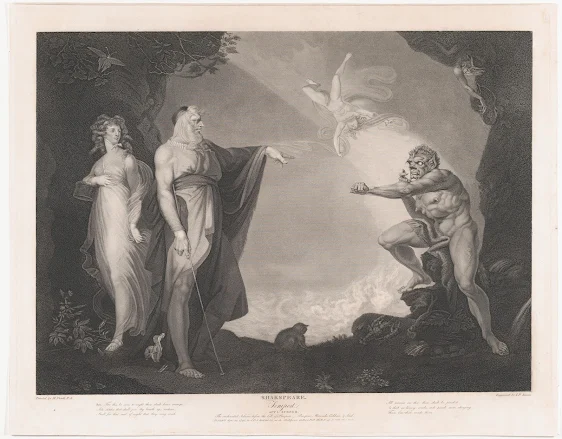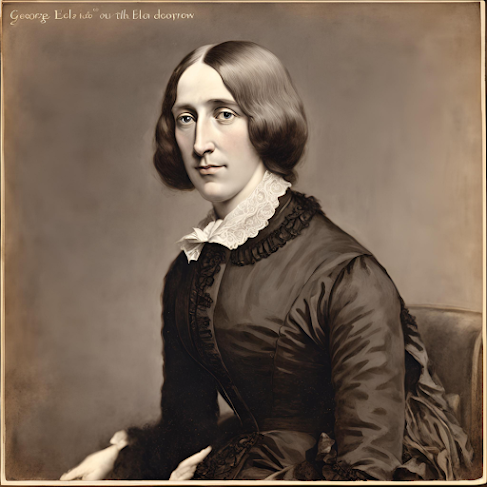William Shakespeare: Historical Interpretation #3
Shakespeare certainly wrote his plays more than four hundred years ago. So how much should we reckon the past?
I have received a comment from under “A Frame of William Shakespeare's Life: Timeline”:
“Nothing. "Probably". "Would have". "Could have". Ridiculous myths, speculation and wishful thinking pawned off as biography. Nonsense. If you have evidence this man was a writer, please post it. We've been waiting for 400 years.”
As well as literature, I'm interested in history. I'd rather read and research about history. In fact, this comment touches on a good point to understand. Surely, history is a science. However, we need proof and documents to make history. Otherwise, we can't convince anyone of anything. In this context, most people believe that history is fiction. For instance, a historicist critic is someone who seeks to place a text in its context, revealing the embeddedness of, for example, Shakespeare's Macbeth in the witch-hunting mania of King James I's early reign. A historicist critic tries to understand a text by examining the time and place it was written, showing how, for example, Shakespeare's Macbeth reflects the widespread fear of witches during the early rule of King James I. (I will mention "New Historicism" that pertains to this issue). They might also conduct primary research in a historical archive, uncovering documents that shed new light on aspects of the text that readers removed by several centuries from its original publication could not previously see.
 |
| 'The Enchanted Island Before the Cell of Prospero - Prospero, Miranda, Caliban and Ariel (Shakespeare, The Tempest, Act 1, Scene 2)', engraved after Henry Fuseli by Peter Simon |
We know very little about the time between the birth of Hamnet and Judith Shakespeare, the twins, and the moment when Shakespeare is first mentioned in the theatre scene in London. This intervening period, often referred to as the lost years of Shakespeare, remains largely mysterious. However, it is certain that he somehow made his way from Stratford-upon-Avon to London. Whether he joined a traveling theatre company in need of an extra actor or fled due to trouble with a local landowner for poaching deer, remains unknown. Despite numerous stories circulating since the 18th century about why Shakespeare left Stratford, no concrete records exist from Shakespeare's lifetime or shortly after to clarify the circumstances surrounding his move to London with three young children and no clear career prospects. Nonetheless, Shakespeare did make this daring move and began establishing himself in the London world from the early 1590s onwards.
As a young boy, Shakespeare would have witnessed actors in Stratford-upon-Avon, as touring acting companies frequently visited the town. These companies would seek permission from the town's bailiff, the administrative leader, before performing. In 1569, when Shakespeare was five, this would have been his father. It's likely that permission was granted, and the first performance, known as the mayor's play, would have taken place. The mayor and his family were expected to attend, and even a curious 5-year-old Shakespeare might have witnessed his first play not far from where he grew up. Touring companies continued to visit Stratford, and in Shakespeare's early 20s, the renowned Queen's Men came to town. While we don't know what they performed, we do know that shortly before their visit, two of their actors were involved in a serious brawl, resulting in one fatality. This incident might have created an opportunity for Shakespeare to enter the professional theatre world, as the troupe may have been in need of additional talent. Thus, despite his humble origins as the son of a glover in Stratford, Shakespeare likely demonstrated enough promise to be recruited into the world of professional theatre.
 |
| Shakespeare's house, New Place, the Chapel and Grammar School, Stratford-on-Avon. From Samuel Ireland "Picturesque Views on the Upper or Warwickshire Avon" |
Stephen Greenblatt describes the area we are currently in, on the south bank of the Thames in London, as a vibrant entertainment zone. People from different parts of the city would visit, knowing they had various activities to choose from. They could hire a boatman to ferry them across the river and then attend theaters like The Globe or The Swan. Alternatively, they could engage in other pastimes such as archery practice, visiting brothels, or patronizing taverns. Additionally, they could watch bull baiting and bear baiting exhibitions, where savage dogs attacked these animals, providing excitement for spectators. However, during the English Civil War, Puritan soldiers killed most of the bears, leading to the decline of this practice.
The area's history as the center of monasteries in the Middle Ages meant it had different legal arrangements from the rest of the city, allowing activities that the city authorities disapproved of but couldn't prevent. The city fathers had various concerns about the theatres, including traffic congestion, people skipping work, the potential for prostitution, and the spread of diseases like bubonic plague. Due to outbreaks of plague, the theatres would periodically be shut down until the death rates decreased. This caused economic difficulties for theatre companies, like Shakespeare's, who had to find ways to pass the time until the theatres reopened.
 |
| Stephen Greenblatt |
The Globe, where we're currently positioned, stands as the most renowned among England's grand amphitheatres during the late 16th and early 17th centuries. It emerged from a groundbreaking initiative in 1576 by James Burbage, a builder and entrepreneur originating from the carpentry trade. Burbage ventured to invest his resources in a groundbreaking endeavour: a purpose-built, freestanding theatre—an unprecedented concept not seen since late antiquity. This endeavour involved substantial risk capital, banking on the idea of attracting large audiences willing to pay upfront for entertainment, rather than relying on post-performance donations as customary in inn yards. The model operated on a system of admission fees, with patrons paying a penny for entry or more for premium seating, ensuring performers received their due applause after the show.
However, The Globe wasn't the sole venue for Shakespearean or contemporary playwrights' performances. Officially, acting as a profession was forbidden, categorized as vagrancy, and punishable by whipping. To circumvent this restriction, actors claimed to be servants of nobility or royalty, thus legitimizing their performances as entertainment for their employers. While court appearances provided prestige, theatres like The Globe and others generated the bulk of their revenue from ticket sales. Performances also took place at venues like the Inns of Court, and legal institutions in 16th-century London, with known productions of Shakespeare's works such as Comedy of Errors at Gray's Inn in 1594 and Twelfth Night at The Middle Temple in 1602. Additionally, plays were staged at universities like Oxford and Cambridge. The necessity for mobility was ingrained in theatre practice; companies had to adapt to closures due to plague outbreaks and relocate for various reasons, reflecting the transient nature of theatrical performances during Shakespeare's era and continuing into modern times.


.png)
.png)
.png)

.jpeg)

